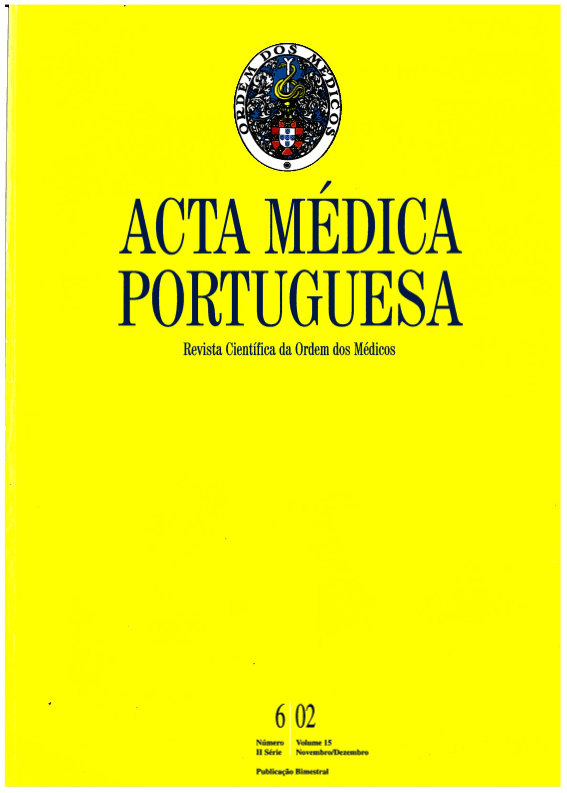Mature onset diabetes of the young (MODY).
DOI:
https://doi.org/10.20344/amp.1981Abstract
Maturity-onset diabetes of the young (MODY) is a rare form of juvenile diabetes mellitus, defined by early onset, absence of ketosis, non-insulin-dependent diabetes and autosomal dominant inheritance. Advances in molecular genetic analysis have identified mutations accounting for different MODY subtypes, all of them associated with defects of insulin secretion. We present a case of a nine year-old boy, admitted to our outpatient clinic because of mild and intermittent osmotic symptoms (polyuria, polyphagia and polydipsia) and persistently high values of fasting blood glucose in the last year. He had a family history of diabetes in three consecutive generations compatible with autossomal dominant inheritance. His height was 138.5 cm (90th centile) and his weight was 33.5 Kg (90th centile). General examination was unremarkable, in a prepubertal boy. A standard oral glucose tolerance test was performed. The fasting blood glucose was 118 mg/dl with a two hour value of 160 mg/dl. ICA, IAA and GAD autoantibodies were undetectable. He started on diet therapy, keeping his fasting blood glucose measurements on the upper limits of normal and HbA1c in the normal range. He was diagnosed as having MODY 2 on a clinical basis, as it is not possible to perform molecular analysis of this pathology in Portugal. As MODY is recently thought to account for 2-5% of all cases of type 2 Diabetes Mellitus it is important to consider it as a possible diagnosis in children who present with incidental hyperglycaemia. Molecular genetic testing is very important as it enables us to make a firm diagnosis of MODY, to define a follow up plan and to reassure patients families, once the prognosis is significantly different among the different sub-types of MODY. We emphathize the need of creating national and international reference centres where such testing can be done.Downloads
Downloads
How to Cite
Issue
Section
License
All the articles published in the AMP are open access and comply with the requirements of funding agencies or academic institutions. The AMP is governed by the terms of the Creative Commons ‘Attribution – Non-Commercial Use - (CC-BY-NC)’ license, regarding the use by third parties.
It is the author’s responsibility to obtain approval for the reproduction of figures, tables, etc. from other publications.
Upon acceptance of an article for publication, the authors will be asked to complete the ICMJE “Copyright Liability and Copyright Sharing Statement “(http://www.actamedicaportuguesa.com/info/AMP-NormasPublicacao.pdf) and the “Declaration of Potential Conflicts of Interest” (http:// www.icmje.org/conflicts-of-interest). An e-mail will be sent to the corresponding author to acknowledge receipt of the manuscript.
After publication, the authors are authorised to make their articles available in repositories of their institutions of origin, as long as they always mention where they were published and according to the Creative Commons license.









